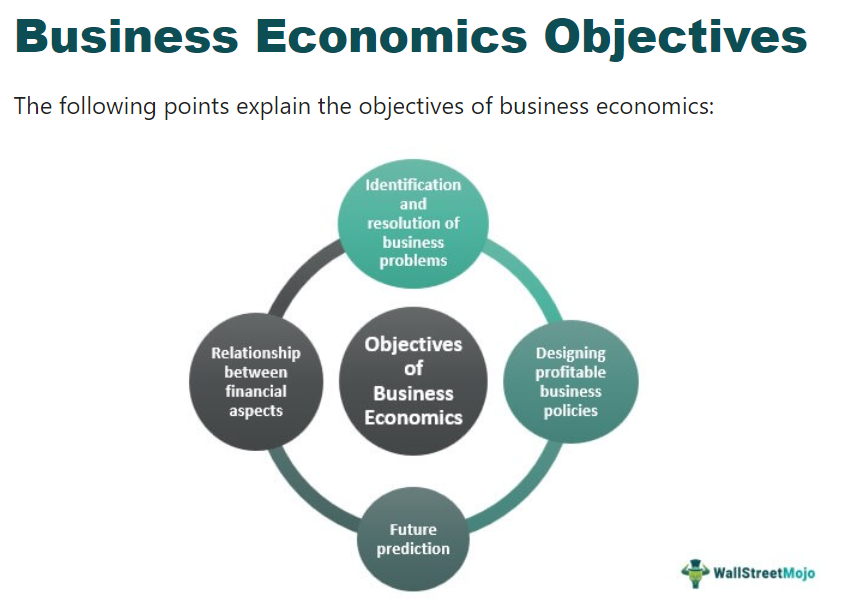How the future of Business and Economics will impact global economies
How the future of Business and Economics will impact global economies
Blog Article
Recognizing Economic Concepts for Better Company Decision-Making
In the complicated landscape of modern business, an extensive understanding of economic concepts can substantially enhance decision-making procedures. The application of these financial theories usually exposes unanticipated difficulties and possibilities that can redefine tactical strategies.
The Fundamentals of Economic Concept
Economic concept acts as the foundation for understanding how individuals and companies choose in the presence of shortage. At its core, financial theory examines the appropriation of limited sources to please endless wants. This essential concept of deficiency necessitates trade-offs, engaging decision-makers to assess the expenses and advantages related to numerous choices.
The two main branches of financial concept are microeconomics and macroeconomics. Microeconomics concentrates on specific representatives, such as customers and firms, examining their behavior and interactions in specific markets. It highlights ideas like supply and demand, rate flexibility, and market equilibrium, which are essential for comprehending exactly how rates are determined and exactly how resources are distributed.
Conversely, macroeconomics analyzes the economic situation overall, resolving more comprehensive concerns such as rising cost of living, unemployment, and financial development. It offers insights right into systemic phenomena that affect all economic agents, guiding policymakers in crafting effective financial methods.
Eventually, a solid grounding in economic theory is vital for efficient service decision-making. By comprehending the principles of shortage, compromises, and market dynamics, organizations can much better browse intricate settings and make informed choices that enhance their affordable advantage.
Secret Economic Indicators
Trick economic indications offer as crucial tools for assessing the health and wellness and direction of an economic climate, offering valuable understandings for service decision-making. These indicators are measurable procedures that reflect the economic efficiency and can be classified right into leading, lagging, and coincident indicators.
Leading signs, such as customer self-confidence indexes and stock market trends, predict future economic task, allowing services to prepare for modifications in the market. Delaying signs, like joblessness rates and corporate revenues, provide insights right into the economy's previous efficiency, assisting companies to evaluate long-lasting fads. Coincident indications, such as GDP growth and retail sales, change concurrently with the economic situation, providing a real-time picture of financial problems.
Recognizing these indicators enables services to make enlightened choices pertaining to financial investments, resource allowance, and strategic planning. A surge in customer self-confidence might trigger business to boost manufacturing in expectancy of greater need. Conversely, rising joblessness prices could bring about a reevaluation of development strategies. By very closely keeping track of these crucial economic indications, organizations can browse unpredictabilities and place themselves successfully in the ever-changing financial landscape, eventually enhancing their decision-making processes and lasting success.

Market Frameworks and Characteristics
Comprehending market structures and characteristics is important for businesses aiming to thrive in competitive settings. Market structures, extensively categorized right into perfect competitors, monopolistic competition, oligopoly, and syndicate, considerably affect rates techniques, item distinction, and competitive habits. Each framework offers unique challenges and chances that can dictate a firm's tactical instructions.
In excellent competition, many small companies compete, resulting in very little rates power and uniform products. Conversely, in monopolistic competition, firms distinguish their items, permitting for some level of pricing power while still facing competition. Oligopolies, defined by a few dominant players, cause synergistic decision-making; companies have to carefully take into consideration competitors' feedbacks to their actions. Monopolies exist when a solitary company regulates the market, resulting in optimal prices power however commonly drawing in regulatory examination.
Understanding these characteristics makes it possible for services to expect market trends, adapt techniques, and enhance resource appropriation. Additionally, recognizing how exterior factors like modern technology and guideline impact these frameworks can boost calculated preparation. By understanding market frameworks and characteristics, firms can make informed decisions, inevitably improving their competitive setting and driving sustainable development.
Consumer Behavior Insights
Consumer behavior plays navigate to this site a critical duty fit organization techniques and end results. Recognizing just how customers make buying decisions, their preferences, and the aspects influencing their behavior can significantly improve a firm's capacity to satisfy market demands. Trick understandings right into consumer habits can be stemmed from evaluating demographics, psychographics, and behavioral patterns.
Market variables such as age, income, education, and gender degree provide a fundamental understanding of target markets. Psychographics dive deeper, exploring customers' values, way of livings, and attitudes, which can affect brand name loyalty and item understanding. Behavioral understandings, such as purchasing regularity and reaction to promos, are very useful for tailoring advertising efforts.
Furthermore, outside aspects like financial conditions, cultural trends, and technical advancements likewise affect customer choices. For example, throughout financial downturns, consumers might focus on crucial items over deluxe products, changing demand patterns.
Using Business Economics to Technique
Insights acquired from consumer actions are crucial in developing efficient company strategies. By leveraging financial principles, companies can much better recognize market dynamics, optimize source allowance, and enhance affordable placing. Evaluating need flexibility, for circumstances, allows firms to adjust pricing strategies to optimize revenue while continuing to be eye-catching to customers.
Furthermore, comprehending market segmentation enables services to tailor their offerings, ensuring they fulfill the details requirements and choices of varied consumer teams. Business and Economics. This targeted method boosts client satisfaction and promotes brand loyalty

Incorporating video game theory into critical planning likewise provides understandings right into affordable actions, permitting companies to anticipate competing activities and develop counter-strategies successfully.

Final Thought
In conclusion, a thorough understanding of economic concepts significantly enhances company decision-making. By taking a look at market frameworks, examining customer actions, and evaluating vital economic indications, firms can create reliable approaches that straighten read here with market needs.
In the facility landscape of modern-day service, a detailed understanding of financial concepts can substantially improve decision-making processes.Leading indicators, such as consumer confidence indexes and stock market patterns, forecast future economic task, allowing companies to prepare for adjustments in the market. By very closely keeping an eye on these vital economic indications, services can navigate uncertainties and place themselves effectively in the ever-changing financial landscape, eventually enhancing their decision-making procedures and long-term success.
By leveraging economic concepts, organizations can much better recognize market dynamics, optimize source allotment, and enhance affordable placing.In final thought, a thorough understanding of economic this contact form concepts significantly boosts organization decision-making.
Report this page